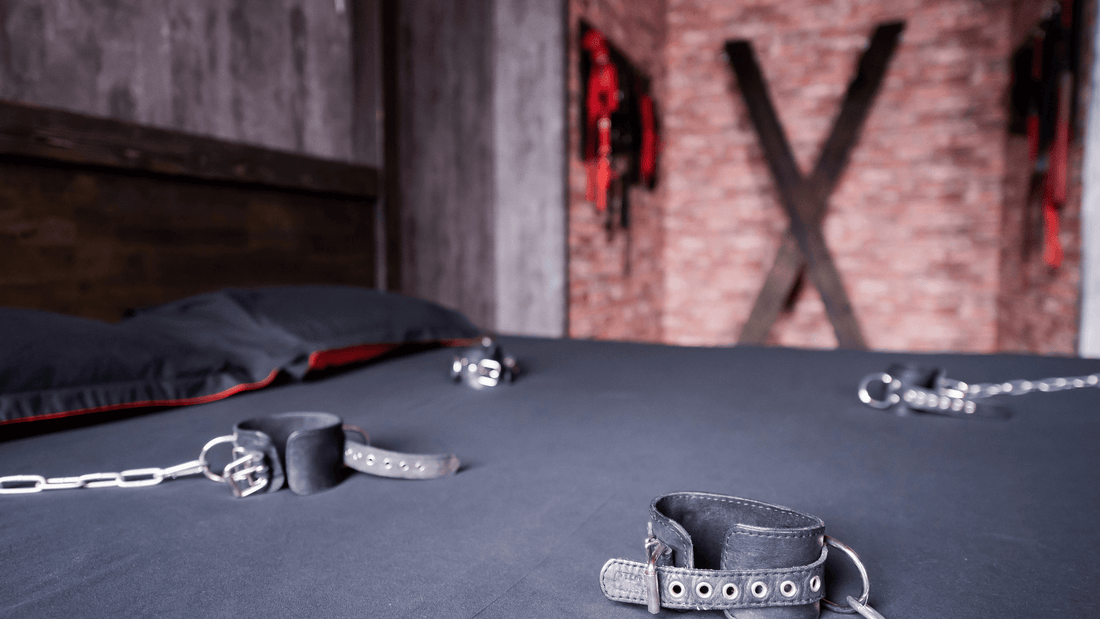
How to Build Confidence After a Scene Goes Wrong in BDSM
Share
Even with the best intentions, communication, and planning, sometimes a BDSM scene doesn’t go as expected.
Maybe a boundary was accidentally crossed. Maybe emotions came up you didn’t anticipate. Maybe you or your partner felt disconnected or unsafe.
It’s normal to feel shaken, embarrassed, or even question if you want to try kink again.
But one bad scene doesn’t define you as a kinky person — or your ability to play safely and confidently in the future.
This guide will help you process what happened, learn from it, and rebuild your trust in yourself (and your partners) so you can keep exploring what turns you on with more clarity, safety, and confidence.
1. Acknowledge What Happened Without Judgement
First: Be honest about what went wrong.
- Did someone go past a limit?
- Was a safeword missed or misunderstood?
- Did emotions come up unexpectedly?
- Was there physical discomfort or pain beyond what was intended?
Try to describe the event without labelling yourself or your partner as “bad”.
✅ “I didn’t speak up when I felt overwhelmed.”
✅ “We didn’t clarify that limit ahead of time.”
✅ “I froze instead of using my safeword.”
Non-judgemental honesty is the first step to understanding — and preventing — similar issues in the future.
2. Prioritise Emotional and Physical Aftercare
After a tough scene, aftercare isn’t optional — it’s essential.
This can mean:
- Talking about what happened in a calm, caring space.
- Offering reassurance, cuddles, or quiet time.
- Checking for and tending to any physical marks or injuries.
- Giving each other space if needed.
If you’re alone, don’t skip self-care:
- Wrap up in a blanket.
- Drink water.
- Journal what you're feeling.
- Reach out to a trusted friend or kink-aware therapist if you need to talk.
Our BDSM Aftercare Guide has more ideas for both partners and solo players.

3. Communicate Openly with Your Partner
If you played with someone else, make space for a no-blame conversation.
- Share how you felt — without accusations.
- Listen to their experience.
- Acknowledge any hurt or fear on both sides.
- Discuss what you wish had happened instead.
This is hard, but it’s crucial for rebuilding trust and confidence.
Pro Tip: Set a neutral, relaxed time to talk — not right when emotions are raw.
4. Reflect on Boundaries, Communication, and Preparation
Once you’ve processed the emotions, look at the practical side:
- Were limits clearly negotiated beforehand?
- Did you both understand safewords or signals?
- Were expectations mismatched?
- Did you skip warm-ups or emotional check-ins?
According to Relate, talking openly about sex, desires, and boundaries is one of the best ways to build trust with your partner(s).
Use the experience to improve your pre-scene negotiation. Our How to Plan a BDSM Scene offers a step-by-step framework for next time.
5. Revisit (or Establish) Safewords and Signals
A common cause of scenes going wrong is unclear safeword use — or freezing in the moment.
✅ Reaffirm what safewords you’ll use.
✅ Agree on non-verbal safe signals if you might be gagged or unable to speak.
✅ Practise saying or signalling them, even outside of play.
If you’re unsure where to start, our Safewords vs Safe Signals Guide explains how to set up clear, mutual systems.
6. Give Yourself Permission to Feel Vulnerable
Shame and guilt can linger after a scene goes wrong.
- “I should have known better.”
- “I’m not cut out for this.”
- “I ruined everything.”
These thoughts are normal — but they’re not helpful truths.
✅ Everyone makes mistakes.
✅ BDSM is a skill you practise and learn.
✅ Vulnerability is not weakness — it’s the foundation of trust and intimacy.
Be gentle with yourself. Healing starts with compassion.
7. Take It Slow Coming Back
You don’t have to “prove” anything by jumping straight back into play.
✅ Start small: gentle sensory play, light bondage, simple power exchange.
✅ Rebuild confidence gradually.
✅ Celebrate small, positive scenes.
If you’re feeling especially anxious, consider starting with solo exploration. Our Mindful Masturbation: Turning Solo Play Into Self-Love guide can help you reconnect with your body and desires without pressure.

❓ FAQ: When a BDSM Scene Goes Wrong
Is it normal for scenes to go wrong sometimes?
Yes. Even experienced players sometimes misread signals or push boundaries too far. The key is learning and communicating.
Should I stop doing BDSM entirely?
Not necessarily. One bad scene doesn’t define your whole journey. Take time to process, heal, and rebuild confidence at your own pace.
How do I know if it was abuse?
If your partner ignored a clear limit or safeword, mocked your discomfort, or refused to talk about it — those are red flags. Our Red Flags in BDSM guide can help you evaluate this honestly.
Can we try again?
If you both want to, yes! With better negotiation, clearer communication, and trust-building, many couples have even stronger scenes after working through a tough one.
Final Thoughts: Mistakes Don’t Define You
A scene that goes wrong can feel devastating — but it doesn’t make you a bad Dominant, a bad submissive, or a bad partner.
It makes you human.
What defines you is your willingness to:
✅ Own what happened.
✅ Care for yourself and your partner.
✅ Learn, communicate, and try again with care.
BDSM is built on trust, consent, and ongoing learning. A single mistake is just a moment — not the whole story.
When you’re ready to explore again, our Beginner BDSM Collection features safe, comfortable gear designed to help you play with confidence, even if you’re starting over.